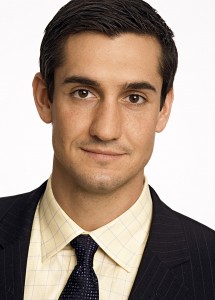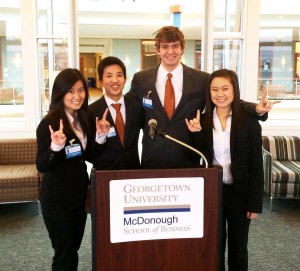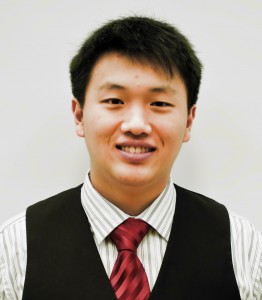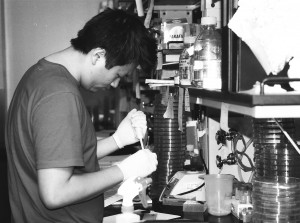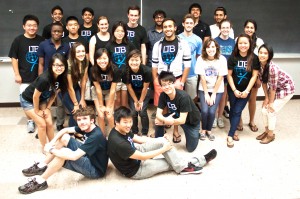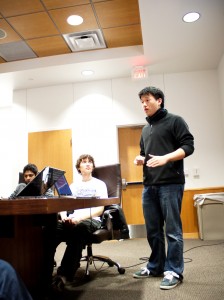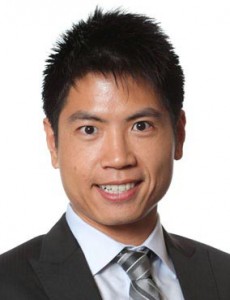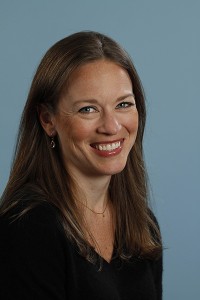 Kelly Merryman, BHP ’98, manages content acquisition for Netflix in Europe. She began her tenure at Netflix in 2007 licensing content for the US market. She co-led Netflix’s international expansion, acquiring TV series and films, in countries including Canada, Latin America, the UK and Ireland, the Nordic countries and the Netherlands. Prior to joining Netflix, Kelly held positions in digital distribution and business development at Sony Pictures Entertainment, and spent time at both Bain & Company and Audax Group, a private equity firm in Boston.
Kelly Merryman, BHP ’98, manages content acquisition for Netflix in Europe. She began her tenure at Netflix in 2007 licensing content for the US market. She co-led Netflix’s international expansion, acquiring TV series and films, in countries including Canada, Latin America, the UK and Ireland, the Nordic countries and the Netherlands. Prior to joining Netflix, Kelly held positions in digital distribution and business development at Sony Pictures Entertainment, and spent time at both Bain & Company and Audax Group, a private equity firm in Boston.
Take me through your career progression from starting at Bain to ending up at Netflix.
Coming out of UT, I was looking for an opportunity to work in management consulting. I thought it would be a great way to build a strong skill set working in different industries and learning about various companies. I accepted a job with Bain in their Dallas office as a consultant. I worked for an airline in South Africa and actually lived there for a bit. I also worked in the automotive and paper sectors, as well as online travel. I learned a lot about myself and about working in different, large organizations.
I felt it was time to make the bets myself and move away from consulting, so I decided to join a private equity shop. Audax Group was founded by leadership from Bain Capital, looking to return to Bain Capital’s roots of investing in middle-market companies. It was an opportunity to execute on the vision component I had worked on as a consultant and see if it actually worked. I got to see what it meant to motivate an employee base during a change in strategy. The experience of thinking about the value of brands and consumers was really fun.
After getting my MBA from Harvard I took a job in LA with Sony and spent two years in their business and corporate development group figuring out how their distribution of media was going to evolve with the introduction of digital. From there, I jumped into the licensing group to actually do the distribution deals and not just plan them. I enjoy the value of negotiating deals and finding a way for two partners to create a new business.
In 2007, a lot of players entered the market place for digital distribution and Netflix reached out to me about joining their team to do digital licensing. I have been here ever since and have had an unbelievable experience. We had about 7 million subscribers in the US when I joined, now we have over 44 million on the streaming side and about a quarter of those are outside of the U.S.
What are your key responsibilities and areas of focus as the VP of Content Acquisition?
I am responsible for content acquisition for Europe. This means that my team and I set the programming strategy for Netflix in the different countries we serve in Europe. We select the titles, negotiate the deals and manage the budget. Another key part of my role is driving the European expansion strategy for Netflix, determining which countries we should move into next. I do this in close alignment with our Marketing VP for Europe.
I read that one of the ways you determine viewers’ interest in a show before buying it is checking how it has done on piracy sites. Can you talk more about that?
There are a variety of ways in which we evaluate programming. We focus most of our time on feature films and scripted TV series. We look at their performance in the market to see what the demand is. Performance on piracy sites is one piece of the puzzle, so are box office figures and linear TV ratings as well as DVD sales. This information helps us understand where there is a need. If we can identify a TV series people are watching on a pirate site because it isn’t available, we can try to license it so they have a legitimate way to view that content.
Can you talk more about Netflix’s decision to make original series content?
Ted Sarandos, our head of content, was the champion of House of Cards, one of our first original series. He had a vision and we all jumped on board quickly. As we continue to grow our business, we want to have a much more exclusive set of TV series and films, and some of those will be original productions. This helps us define our brand and generate excitement and buzz. Netflix today is much more like a channel, albeit pure on demand, instead of a broad distributor. This strategy helps keep subscribers longer.
You were very involved in the expansion of Netflix to other countries. What were the main challenges in making those deals and how has that expansion affected the company?
The biggest question we had was “is Netflix a U.S. service?” We had to ask ourselves if everyone in the world would be interested in on-demand, or if that was uniquely American. Expanding into other countries validated that the demand was there. For the content side, we had to dive in and recognize that each market is unique and we needed to spend the money to develop those local partnerships to get the right content. We had to convince investors of the need for upfront investments that would pay off later. And they have.
What is the best part of your job?
The people. We have such a unique culture over here. We find really impressive experts in their space and give them freedom and responsibility. Being at the forefront of changing this industry is special and exciting.
Were there any specific classes at McCombs that stand out to you or helped prepare you for what you have been doing?
The case method taught in small classrooms was great. It was valuable to learn to work through solving a problem that wasn’t just in one area, but in all areas and learning how they came together. My favorite class was a marketing class taught by Shelby Carter. He would talk about unique challenges he had faced in his professional life and ask us how we would have dealt with it. Seeing those real-life examples and the grey area was enlightening. I realized nothing was as easy as it looks on paper and the answers aren’t always black and white.
Any advice for current BHP students?
Spend time networking with your classmates. They will be some of the most important people in your future. Always ask questions and ask speakers about their most challenging moments and how they handled it. Understanding how people deal with challenges can teach you a lot.

